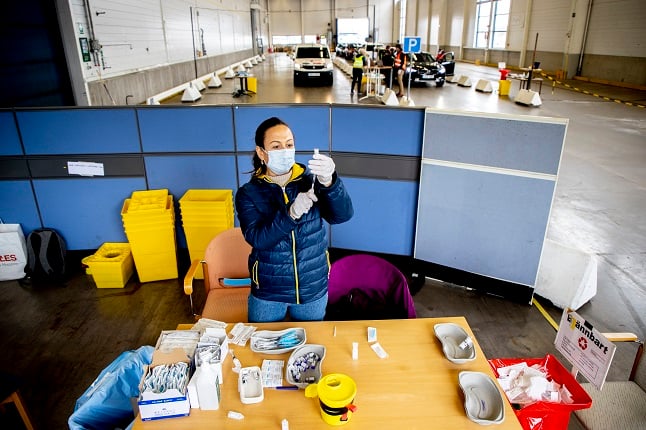Question: I am aged under 60 and have a medical condition that makes me vulnerable to serious illness from Covid-19. How do I get the Covid-19 vaccine, and what proof do I need that I’m in a risk group?
The answer depends on two things: which region of Sweden you live in, and which risk group you belong to.
Recipients of organ transplants and people on dialysis, as well as people who receive LSS assistance, are included in Phase 2 of the vaccination programme. All of Sweden’s regions have opened up vaccination to this group, so these people should have been contacted about their vaccine either by their place of treatment or doctor. If you belong to these categories and haven’t yet been contacted, you should look at the information from your region.
Phase 3 in the four-stage vaccination programme includes all adults who belong to a Covid-19 risk group.
The groups considered at risk of severe illness from Covid-19 may vary slightly between Sweden and other countries, particularly when it comes to defining “severe” asthma or obesity, for example. Here is a list from the Public Health Agency of the risk groups included in Phase 3:
- Chronic cardiovascular disease, including strokes and hypertension (high blood pressure)
- Chronic lung disease such as COPD and severe and unstable asthma
- Other conditions that lead to impaired lung function or impaired coughing and secretion stagnation (for example, extreme obesity, neuromuscular diseases or multiple disabilities)
- Chronic liver or kidney failure
- Type 1 and type 2 diabetes
- Conditions that severely weaken the immune system due to an illness or treatment
- Down syndrome
And as well as these medical risk groups, the risk groups who are part of Phase 3 also include people who have particular difficulty following national recommendations, for example people with dementia or a cognitive or mental disability, as well as some people in socially vulnerable situations.
Sweden’s vaccine rollout is managed at a regional level, and different regions are at different stages.
All regions have now begun Phase 3, but at the time of writing some regions had not yet opened vaccination booking for adults aged 18-59 in a risk group, instead focusing on other groups in Phase 3, such as 60-64-year-olds.
Some of the regions that have started Phase 3 have opened booking to all adults in a risk group, while some are opening it to people in risk groups starting with the oldest first, so are currently offering the vaccine only to over-50s or over-40s in a risk group.
It’s important to bear in mind that the vaccination rollout can change quickly, for example if more doses become available, or if uptake is slow and the region decides to open up booking to the next eligible group.
In many regions, you will be contacted directly when you are eligible for the Covid-19 vaccine. In that case, you should be told in the letter or phone call if there is any specific information you need to bring with you.
You can also stay up to date on when the vaccination is being offered to different groups in your region is by checking the regional website and the regional 1177 page, as well as following local news. You can find a list of all these websites from the website KrisInformation, which provides information from Swedish authorities on crises, or simply go to 1177.se and choose your region.
If you belong to one of the risk groups outlined above, you may also want to consider contacting your doctor’s office to make sure they have your up-to-date contact details and medical information.


 Please whitelist us to continue reading.
Please whitelist us to continue reading.
Member comments